Committed to Restoring Our Greatest Natural Resource
Water quality is a major research focus at UToledo where experts are studying algal blooms, invasive species such as Asian carp, and pollutants to ensure continued access to safe drinking water.
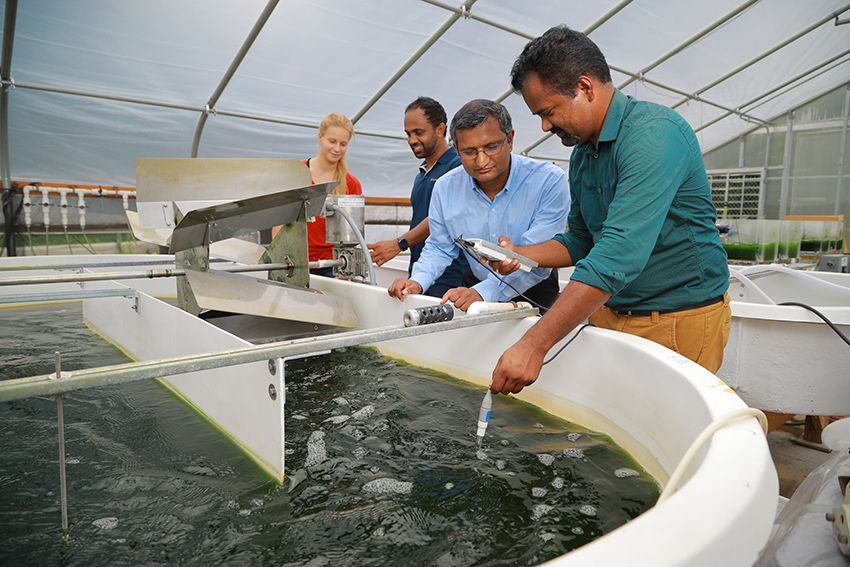
Chemical engineering professor Sridhar Viamajala, Ph.D., is advancing technology that speeds up the capture of carbon dioxide from the atmosphere to grow algae, a critical part of the process of turning algae into biofuel, with $3.2 million in support from the U.S. Department of Energy. The grant is part of $34 million announced by the Bioenergy Technologies Office to fund 11 projects nationwide.
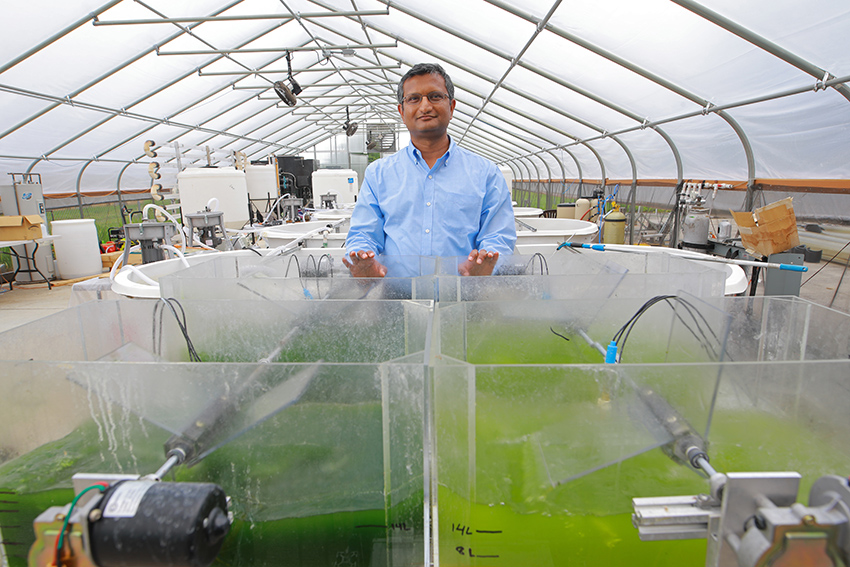
With a $1.4 million grant from the U.S. Army Corps of Engineers, Youngwoo Seo, Ph.D., professor of civil and environmental engineering and chemical engineering, is advancing technologies for early detection and treatment of harmful algal blooms in collaboration with Thomas Bridgeman, Ph.D., professor of ecology and director of the UToledo Lake Erie Center, and Dae-Wook Kang, Ph.D., assistant professor of civil and environmental engineering.
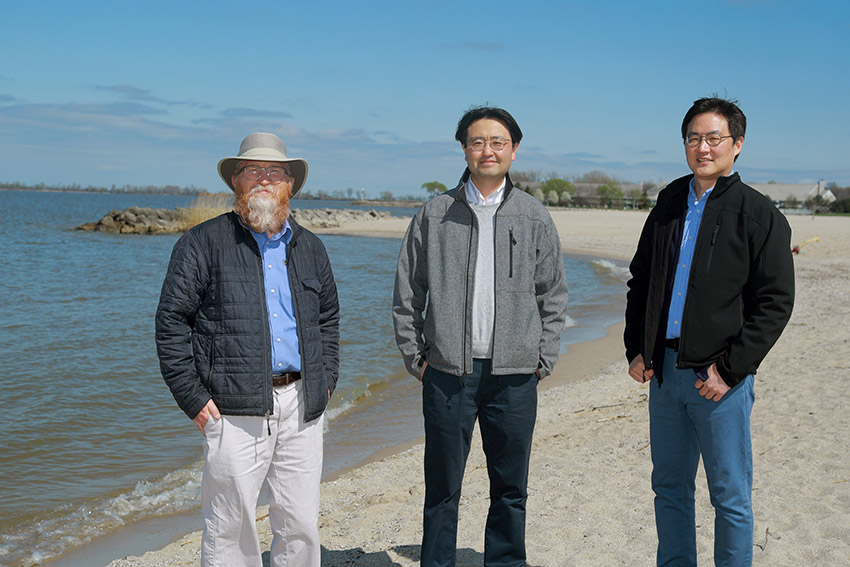
Emanuela Gionfriddo, Ph.D., assistant professor of analytical chemistry, is creating a new method to study the chemical compounds in fracking wastewater to better understand the pollutants in produced water that can directly contaminate drinking water sources.
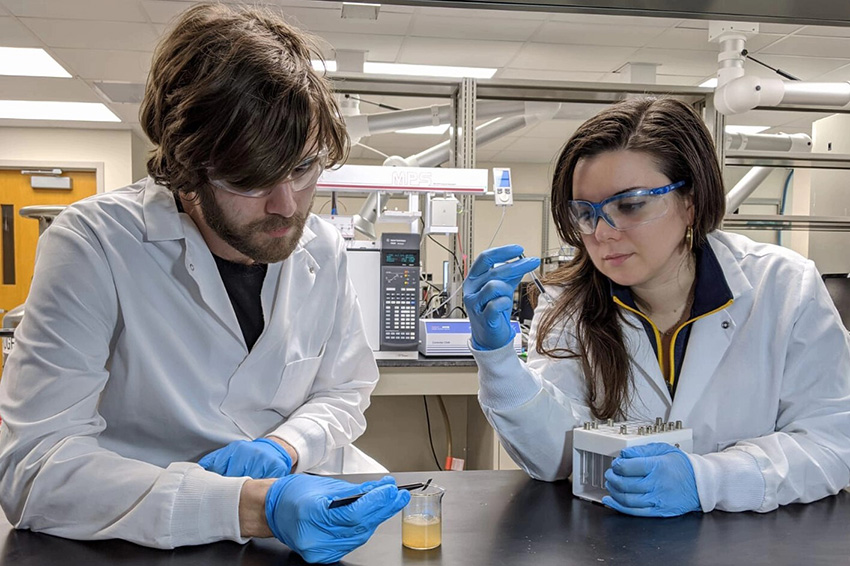
NOAA is supporting next-stage research by medical microbiologist Jason Huntley, Ph.D., with a $1.1 million grant to create new biofilters using native freshwater bacteria that he proved can destroy toxins produced during harmful algal blooms in a way that is not only effective, but also inexpensive.
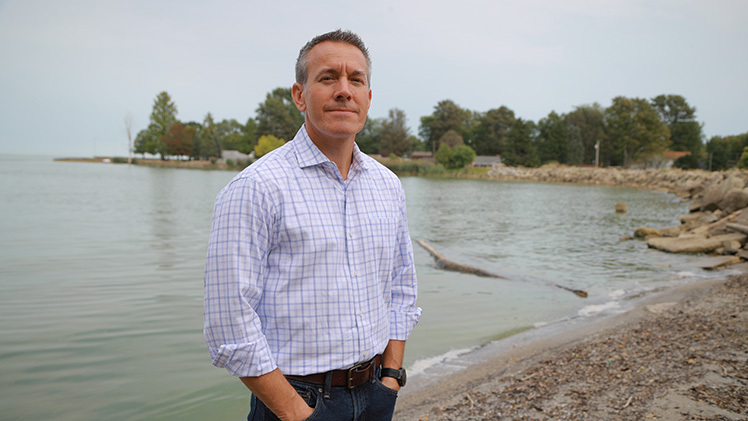
Environmental and ecological statistics expert Song Qian, Ph.D., associate professor of environmental sciences, played a critical role in NOAA research that used a 30-year data set to investigate how climate change is warming the deepest parts of Lake Michigan.
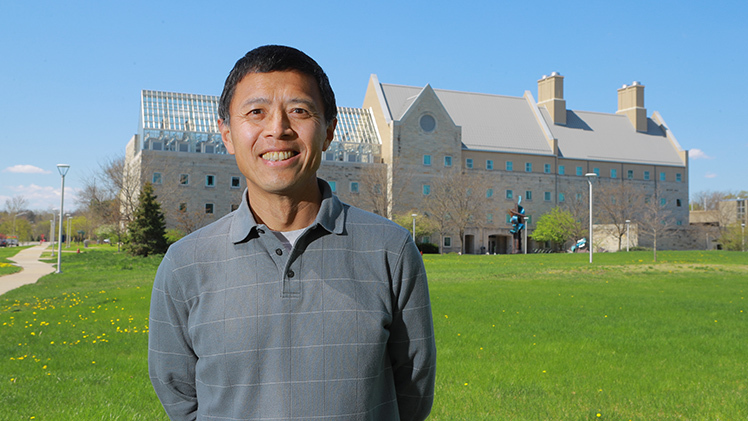
Aquatic ecologist Christine Mayer, Ph.D., professor of ecology, has helped physically remove invasive grass carp from rivers that flow into Lake Erie since 2017, but it is not making a dent in the fish population. She is researching their life cycles to find out why.
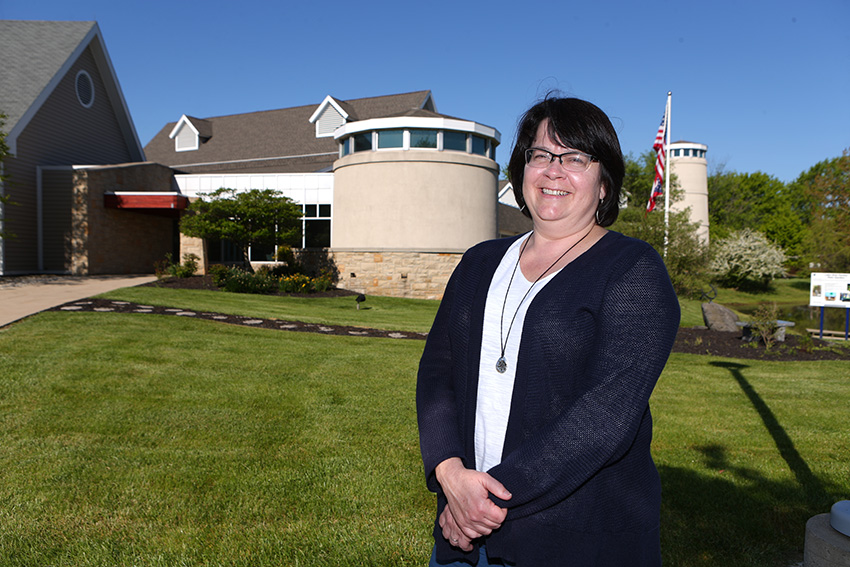
UToledo is playing a critical role in returning threatened, prehistoric fish to the Great Lakes. Graduate student Jorden McKenna is helping track the newly released juvenile lake sturgeon in Lake Erie that are fitted with acoustic telemetry tags to report the fish’s position for a project that hopefully will reestablish natural spawning in the Maumee River.
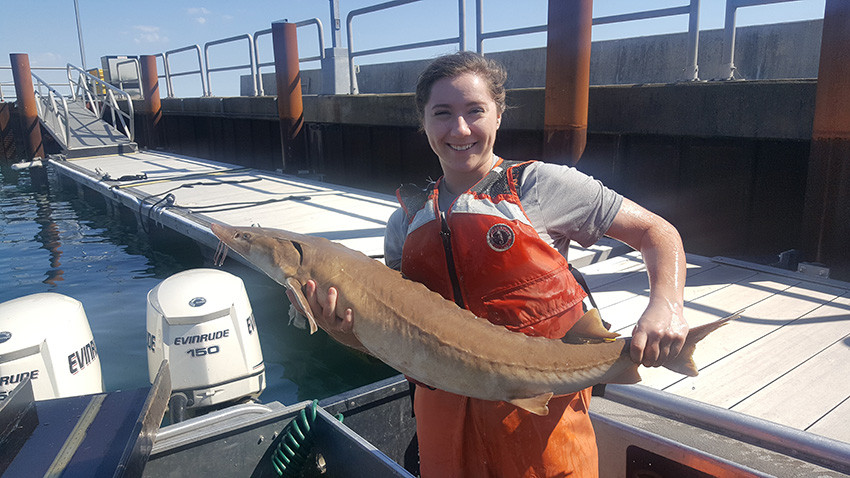
Medical microbiology doctoral student Joshua Breidenbach received a prestigious F31 Ruth L. Kirschstein National Research Service Award from the National Institutes of Health based in part on his research studying how individuals with asthma are affected by the cyanotoxins that get dispersed into the air during harmful algal blooms.
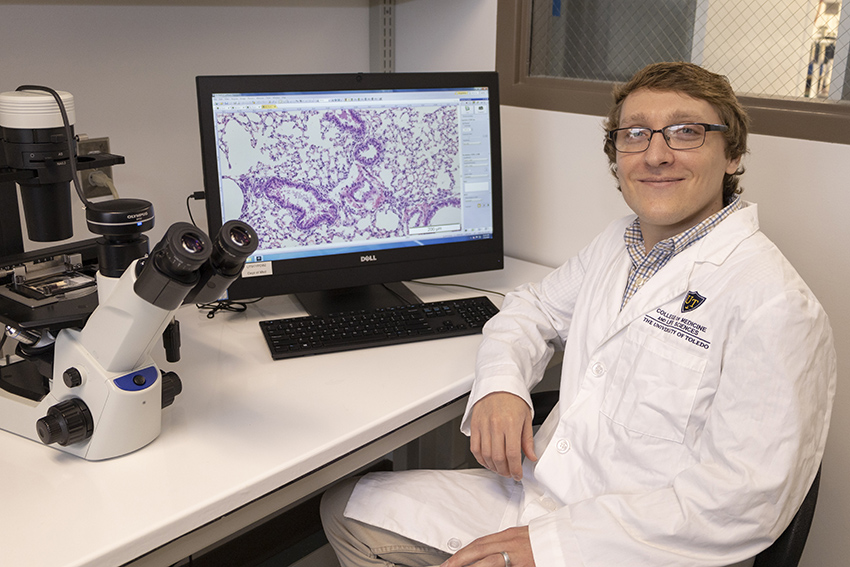
UToledo environmental engineering students are joining Defne Apul, Ph.D., professor and chair of the Department of Civil and Environmental Engineering, to remove litter from “trash traps” along the waterways connected to Lake Erie as part of a project to analyze where trash in area water is originating.
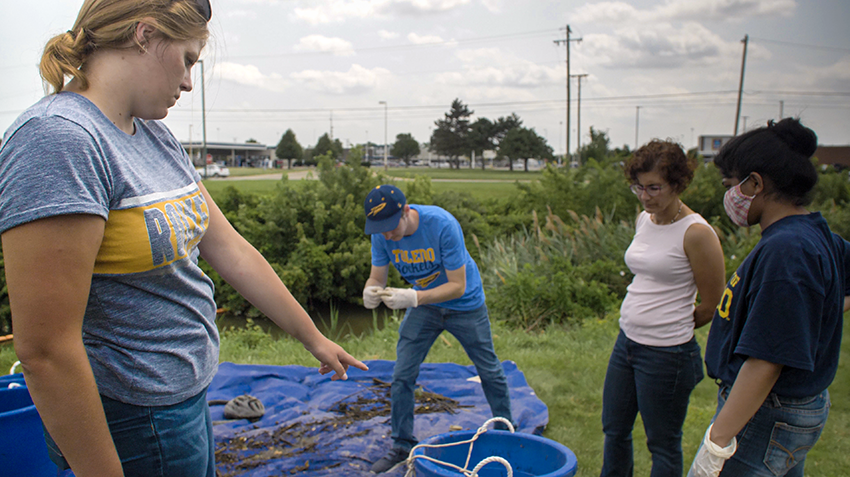
Learn More
- Popular Science: Human Activities are Making Freshwater Sources Saltier
- Columbus Dispatch: Farmers Make Progress in Keeping Fertilizers out of Ohio Waterways, but Much Work Remains
- The Blade: Summer 2021 Algal Bloom Now Covers 300 Square Miles of Western Lake Erie, Nearing Its Annual Peak
- The Blade: UT Leading Three-Year Effort to Improve Detection, Treatment of Algal Toxins
- 13 ABC: University of Toledo Gets New Technology to Dissect Algae Bloom Toxins
- The Blade: UT Professor Awarded $3.2 Million to Advance Algae Biofuel Technology
- Biofuels International: UToledo Receives $3.2-M to Advance Algae Biofuel Technology
- Science Times: NOAA Grants Ohio Researchers $1.1M To Develop Global Solution for Filtering Freshwater
- 13 ABC: UT scientist receives $1.1 million grant for work in clean water solutions
- WTOL 11: UT Awarded $1.4 Million to Help Fight Toxic Algae
- Wired: The Feds Want You to Destroy This Sneaky Mussel’s Hiding Spot
- Atlas Obscura: The U.S. Government Is Begging You to Destroy Moss Balls
- Study Reveals Many Great Lakes State Parks Impacted By Record-High Water Levels
- UToledo Lake Erie Center to Outfit Floating Laboratory for Science Cruises
- The Blade: NOAA commits $80K for Sandpiper to give students “floating laboratory”
- NBC 24: UToledo Lake Erie Center to Outfit Floating Laboratory for Science Cruises
- The Blade: Partners for Clean Streams celebrating 25 years of cleanups on Saturday
- Ohio Attorney General Appoints UToledo Chemist to Scientific Advisory Council
- Great Lakes Now: C+: Western Lake Erie receives mediocre score on new report card
- WTOL 11: ‘Trash Trappers’ to be Installed in Toledo Waterways
- NBC 24: Toledo Installs First of Several “Trash Traps” in Effort to Clean Waterways
- The Blade: Glimmer of hope remains for Lake Erie Bill of Rights